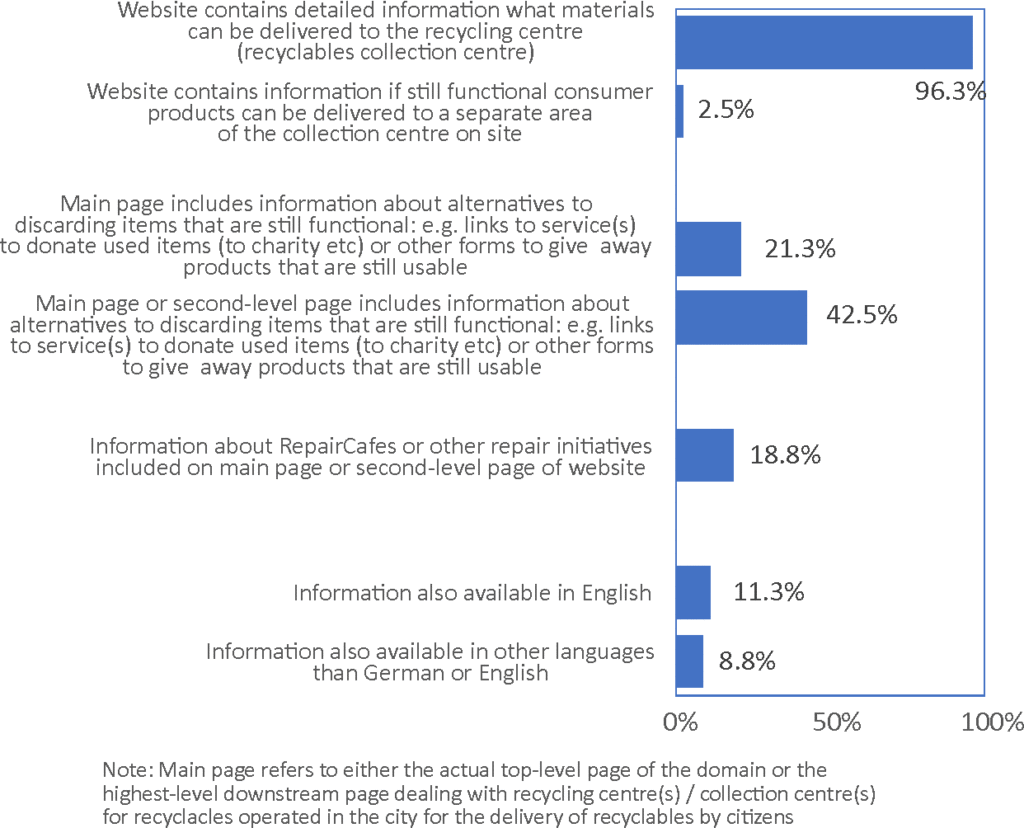We conducted a web-based analysis of the websites dedicated to informing the citizen about the private delivery of recyclables to the local recyclables collection centre (recycling centre) in Germany. All cities in Germany with a population of more than 100,000 inhabitants were considered (80 cities in total). Clarity of information regarding the types of materials which can be delivered by the private household to the recycling centre was assessed. Furthermore, it was analysed whether the website pro-actively encouraged higher forms of circular economy practices such as re-use and repair practices, which according to the waste management hierarchy are options of priority compared to recycling because they keep the materials at higher value in the economy. Most websites, namely 96%, contained detailed information about the materials which can be delivered by the citizen to the recycling centre. Around 10% of websites also informed in at least one language other than German, a valuable service to individuals with a background of migration. However, most websites missed the opportunity to point out the existence of alternatives to discarding valuable items as waste at the recycling centre. 43% of websites provided information about alternatives to discarding still functional products, such as links to services to donate such items to charity organisations. 19% of websites included information about RepairCafes or other local repair initiatives, thus pro-actively informing the visitor of the website about this option. The results of the study show that the German recycling centre websites fulfil their main purpose of informing the citizen whether a specific item can be delivered to the site, but the websites largely miss the opportunity to pro-actively encourage circular economy practices which sit at higher levels of the waste management hierarchy.

Publication:
Kusch-Brandt, S.: Websites informing the citizen in Germany about the local recycling centre: a survey under a circular economy perspective. Proceeding “20th International Multidisciplinary Scientific Geoconference SGEM 2020”, Energy and Clean Technologies, vol. 4.1, Sofia, pp. 281-286.